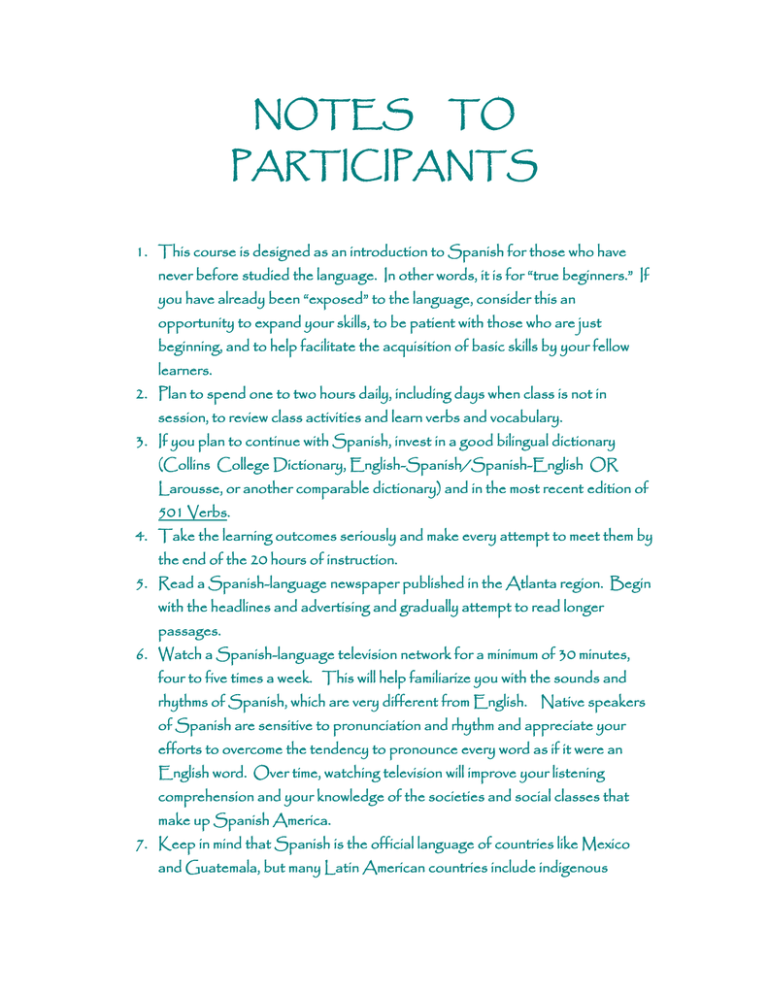Note to Participants
advertisement

NOTES TO PARTICIPANTS 1. This course is designed as an introduction to Spanish for those who have never before studied the language. In other words, it is for “true beginners.” If you have already been “exposed” to the language, consider this an opportunity to expand your skills, to be patient with those who are just beginning, and to help facilitate the acquisition of basic skills by your fellow learners. 2. Plan to spend one to two hours daily, including days when class is not in session, to review class activities and learn verbs and vocabulary. 3. If you plan to continue with Spanish, invest in a good bilingual dictionary (Collins College Dictionary, English-Spanish/Spanish-English OR Larousse, or another comparable dictionary) and in the most recent edition of 501 Verbs. 4. Take the learning outcomes seriously and make every attempt to meet them by the end of the 20 hours of instruction. 5. Read a Spanish-language newspaper published in the Atlanta region. Begin with the headlines and advertising and gradually attempt to read longer passages. 6. Watch a Spanish-language television network for a minimum of 30 minutes, four to five times a week. This will help familiarize you with the sounds and rhythms of Spanish, which are very different from English. Native speakers of Spanish are sensitive to pronunciation and rhythm and appreciate your efforts to overcome the tendency to pronounce every word as if it were an English word. Over time, watching television will improve your listening comprehension and your knowledge of the societies and social classes that make up Spanish America. 7. Keep in mind that Spanish is the official language of countries like Mexico and Guatemala, but many Latin American countries include indigenous peoples who do not speak any Spanish, or speak very little Spanish. Many of these peoples (the Mayas, for example) have immigrated to the U.S. and you may have some of their children in your class. Culturally and linguistically they are often quite different from those of European or mixed descent. Be aware of the huge differences within and among Latin American countries and their inhabitants. 8. Please help us improve the course by noting your foreign language learning style—what works and what needs to be eliminated or added. 9. THIS COURSE IS NOT INTENDED TO BE AN EXERCISE IN MEMORIZATION OF VOCABULARY. Although you have some grammar explanations and a glossary as study aids, it is your responsibility to use the activities as a vehicle to help you communicate a message that will be comprehensible. Take a deep breath and leave English behind; do not expect to understand everything; do expect to practice communicating and working cooperatively; do expect to continue learning after the course ends. ¡Qué se diviertan muchísimo!

